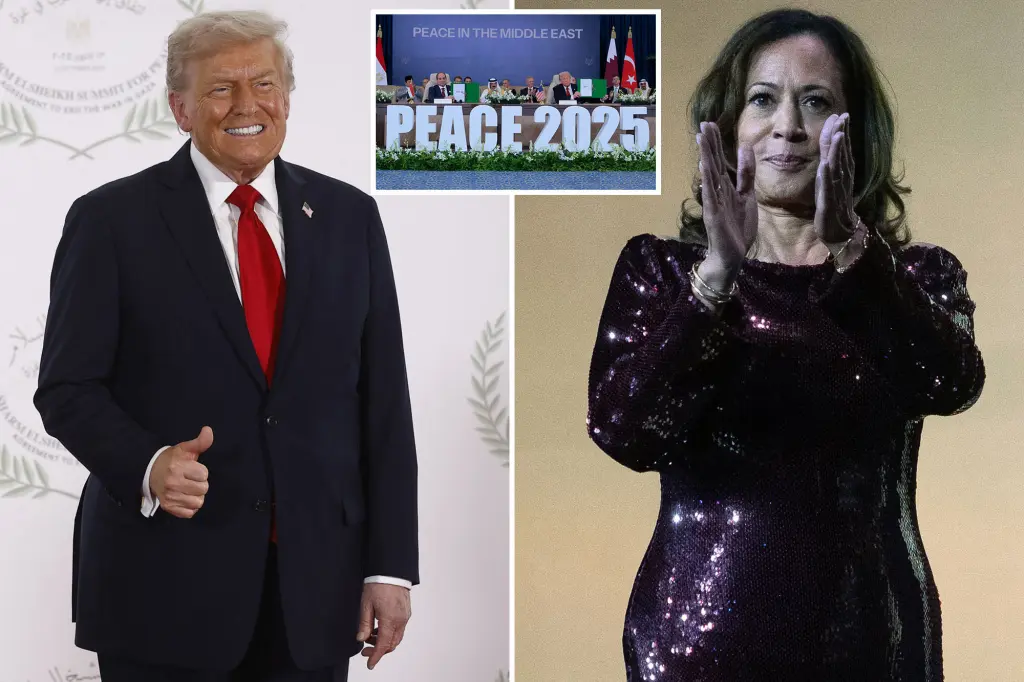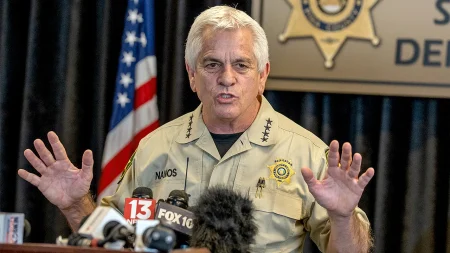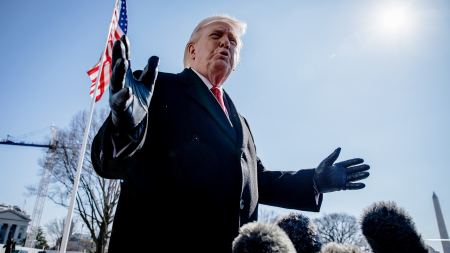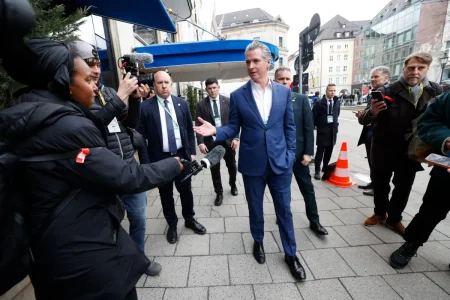Harris Acknowledges Peace Deal in Middle East, While Political Undercurrents Swirl
In a significant diplomatic breakthrough, the last 20 living Israeli hostages held by Hamas have been freed under a ceasefire agreement brokered with substantial involvement from President Trump’s administration. Former Vice President Kamala Harris issued a statement praising the development, though her acknowledgment came with notable political nuances that reflect the complex dynamics of post-election politics in Washington.
Harris expressed profound gratitude for the ceasefire, describing it as “an important first step toward a more hopeful future.” Her statement emphasized the human impact of the agreement: families reunited after prolonged separation and suffering, and desperately needed relief beginning to reach Palestinian civilians in Gaza who have endured what she termed “unimaginable suffering.” The former Vice President’s response highlighted both the immediate humanitarian benefits and the potential for this agreement to serve as a foundation for more lasting peace. However, political observers noted that Harris conspicuously referred to Trump only as “the President” rather than by name, a subtle distinction that didn’t go unnoticed in Washington’s politically charged atmosphere. This careful wording choice reflects the delicate balance many Democrats are attempting to strike – acknowledging diplomatic successes while maintaining political distance from their recent electoral opponent.
The path to this peace agreement was extraordinarily complex and fraught with challenges. Trump unveiled a 20-point peace plan on September 29, which Hamas accepted on October 8 followed by approval from the Israeli security cabinet the next day. The ceasefire officially began the previous Friday, culminating in the release of the final living hostages on Monday – timed to coincide with Trump’s address to the Israeli Knesset and his participation in the “Summit for Peace” in Egypt. Throughout the process, Harris had offered measured acknowledgment of the diplomatic efforts, telling MSNBC she believed in giving “credit where it’s due” and commending the various parties involved, including “the Qataris, the Egyptians and the president.” Her careful language stands in contrast to how she referred to international partners by name while using only Trump’s title – a small but telling distinction in the realm of political communication.
The response to the peace deal has highlighted divisions within the Democratic Party regarding how to engage with Trump’s foreign policy achievements. While Harris offered cautious praise, other prominent Democrats took varied approaches. Some party members refrained from explicitly crediting Trump’s role in the process, while others, like Representative Jasmine Crockett of Texas, directly criticized the president, describing his actions as “diabolical” for “raising hell at home & then pretending to be the President of Peace.” This spectrum of responses reflects the challenging position Democrats find themselves in – acknowledging genuine diplomatic progress while maintaining their political critiques of the administration. The varying approaches also reveal ongoing strategic disagreements within the party about how to position themselves in relation to Trump’s presidency following their electoral defeat.
Former President Joe Biden, who himself had struggled with navigating the complexities of the Gaza war during his administration, took a different approach than his former running mate. Biden explicitly mentioned Trump by name in his statement, saying, “I commend President Trump and his team for their work to get a renewed ceasefire deal over the finish line.” Biden’s statement also emphasized his own administration’s previous efforts, noting they had “worked relentlessly to bring hostages home, get relief to Palestinian civilians, and end the war.” This more direct acknowledgment represents a different political calculation than Harris’s more measured response, perhaps reflecting Biden’s position as a former rather than future potential candidate, allowing him more flexibility in crossing partisan lines to acknowledge the diplomatic achievement.
Looking forward, Harris emphasized that despite this significant breakthrough, “There is still much more work to do to secure a lasting peace, ensure the safety and dignity of every innocent life, and build a future where Israelis and Palestinians can live side by side in freedom and security.” This statement reflects both the genuine complexity of Middle East peace processes and serves as a reminder that single diplomatic achievements, while important, require sustained effort to transform into lasting peace. The Israel-Hamas war had created significant political challenges for Democrats, particularly splintering their progressive base during Harris’s presidential campaign. As the region moves forward under this new agreement, the political reverberations will continue to be felt in Washington, where acknowledgment of diplomatic successes remains inseparable from calculations about political positioning and future electoral prospects. The complex dance of praise and distance displayed in these official responses demonstrates how even moments of international breakthrough remain deeply entangled with domestic political considerations.











